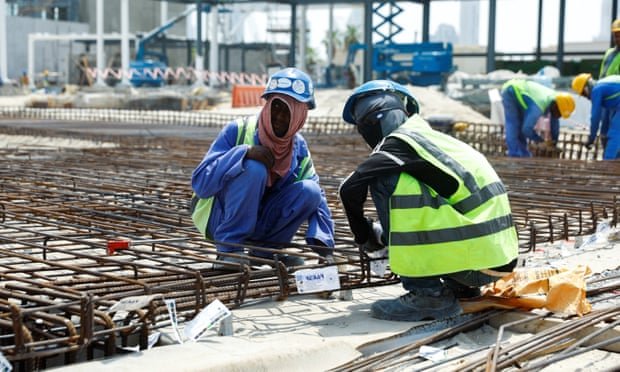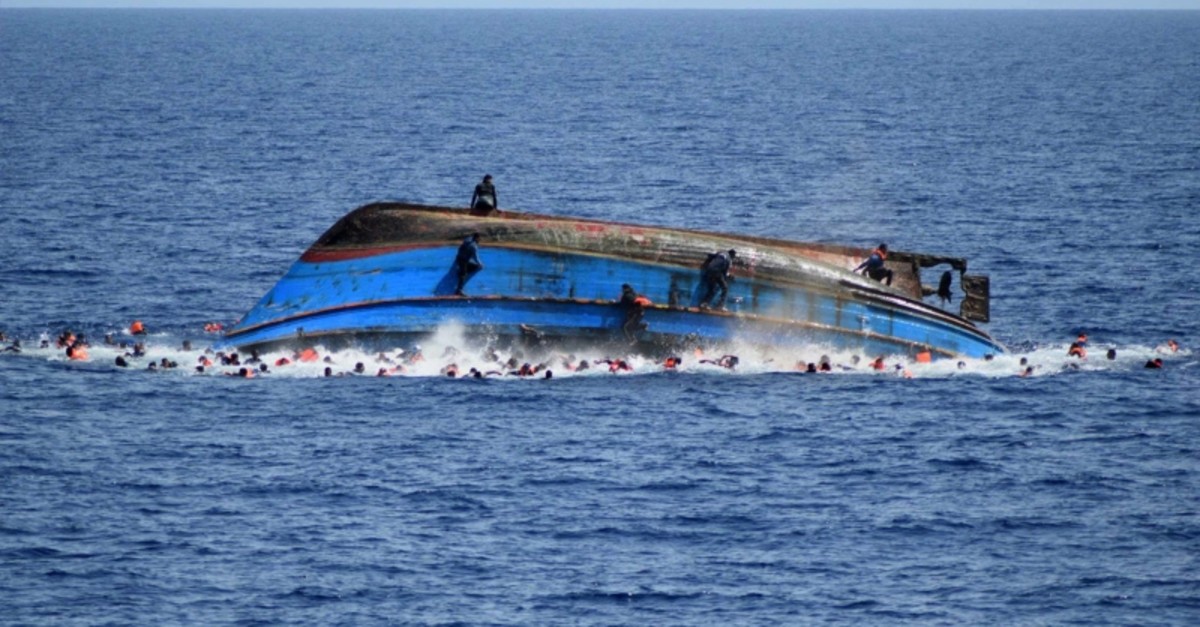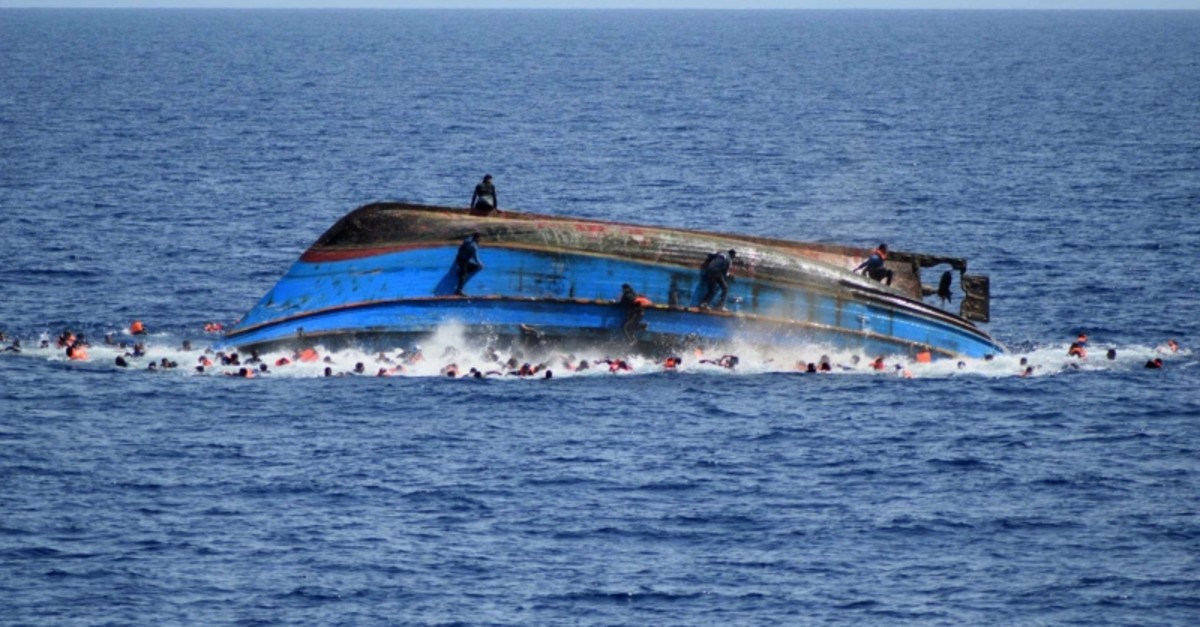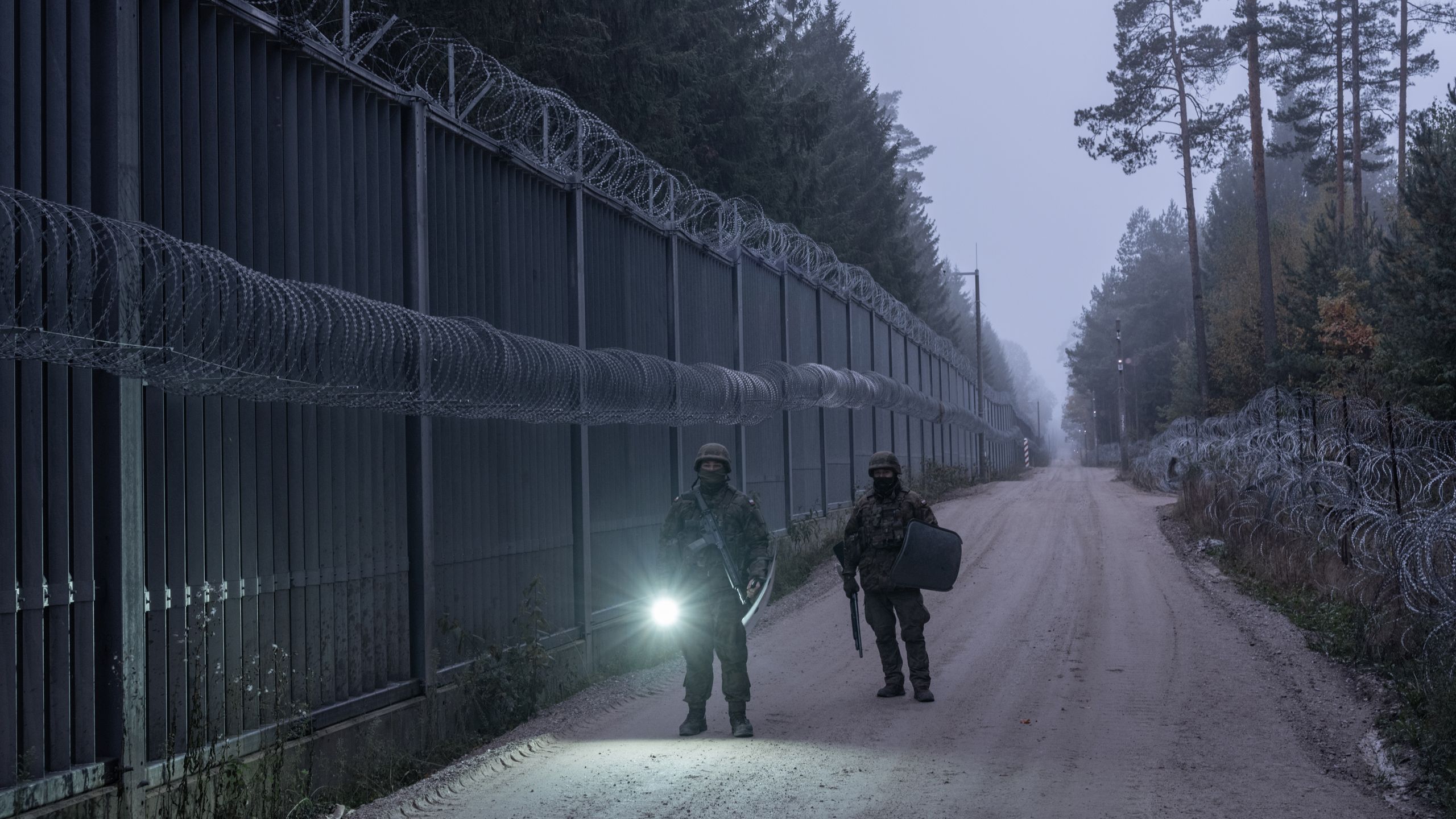Photo credit: the Guardian
Migrant workers across the Gulf are risking their lives by being forced to work up to 14 hours a day in deadly temperatures, according to human rights researchers.
The Guardian reports that a human rights organization, Equidem, interviewed over 250 migrant workers in Saudi Arabia, Qatar and UAE between 2021 and May 2024 on the conditions they were facing, including their exposure to extreme heat and long working hours.
It revealed that speaking to workers was challenging, as both they and the researchers could face arrest, detention, and deportation if caught conducting interviews. Equidem research is undertaken by migrant workers hired to document their fellow workers’ working conditions.
A leading global destination for migrant workers from some of the world’s poorest countries, the Gulf brings them in to work on large-scale construction projects such as Saudi Arabia’s Neom project and the men’s football World Cup in Qatar.
Equidem calculates the “wet-bulb temperatures” that workers across the region were exposed to. Wet-bulb temperature measurements are used to assess the combined effect of temperature, wind speed, humidity, and solar radiation on the human body.
The UN says all outdoor physical work should stop when the wet bulb temperature reaches 32C. At this point, the body can no longer cool itself, and organs can start failing. Yet Equidem says its research found that workers across the Gulf region were increasingly being forced to work in wet bulb temperatures of more than 45C.
Many of the workers interviewed for the report were employed to do jobs that involved extended periods of strenuous work outside on construction sites, as delivery drivers, or as domestic workers. Between April and September, they were exposed to some of the world’s highest temperatures. They reported limited access to water and break times, as well as a host of heat-related health issues, including skin rashes, dehydration, and heatstroke. They also reported illegal hours of up to 84 hours a week, and 14-hour shifts with no overtime pay.
On construction sites in Qatar, teams of workers reported receiving buckets of frozen water to share, forcing them to wait for the ice to melt and take turns before drinking. This reduced breaks and kept people on site.







